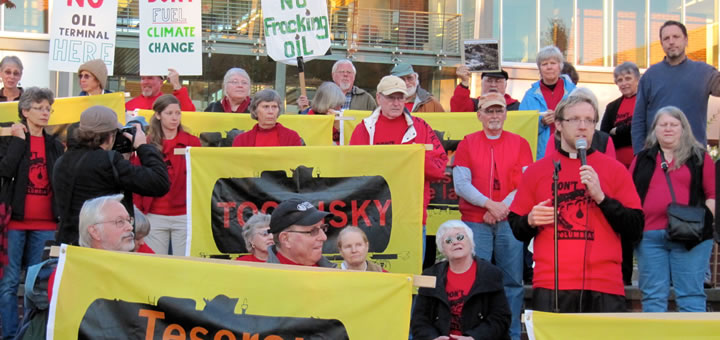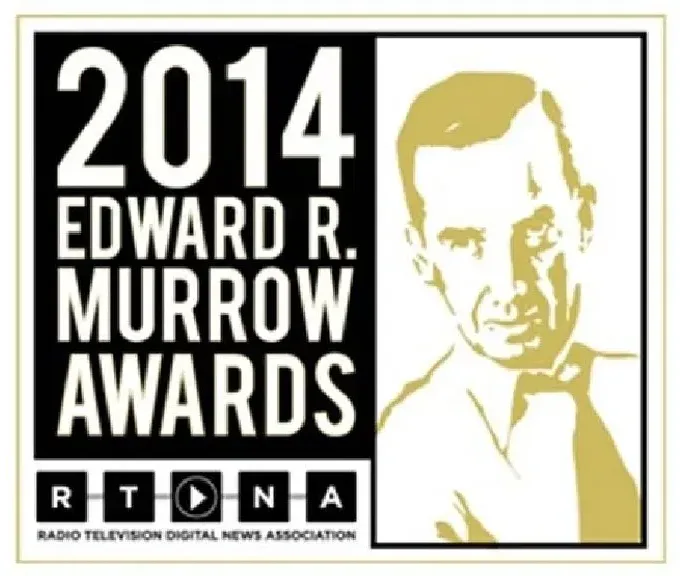Source: Cassandra Profita, EarthFix
A one-year time clock is ticking in the state permitting process for a controversial oil terminal proposed in Vancouver, Wash.
On Tuesday, the Washington Energy Facility Site Evaluation Council held its first scoping hearing for the Tesoro-Savage terminal at the Port of Vancouver. About 300 people stood in line to get into the hearing; most of them wore red shirts in protest.
Brooks Berndt, a pastor at the United Church of Christ in Vancouver, was one of a couple hundred people who attended a protest rally before the hearing. He said the state should deny the permits based on the project’s environmental impacts to air, water, public safety and global warming.
“There’s all these impacts that should be considered if you’re going to have a process with some moral rigor to it,” Berndt said. “If all of these impacts are considered, this oil terminal will stop before it happens.”
State agencies are in the early stages of evaluating the environmental impacts of the proposed terminal, which would handle 360,000 barrels of crude oil a day. The oil would travel by rail from the Bakken oil fields in North Dakota to Vancouver, where it would be transferred to ships bound for West Coast refineries.
Project backers Tesoro Corporation and Savage Companies have a lease from the Port of Vancouver. But they still need permits and approval from the state of Washington before they can start building.
In August, the companies submitted an 800-page application to the state. That started a one-year review process involving numerous state agencies that will need to sign off on the project before it can begin construction.
Mark Smith, vice president of strategy and business development for Tesoro Corp., said the companies chose to go through a rigorous state review process in part to educate the public and allay people’s fears.
“Hopefully with all this data we’re providing, all these public meetings, all our community outreach we can get people to understand a little more about oil terminals and crude by rail and refineries and U.S. energy independence,” he said.
At the end of the state’s one-year review process, a council of five state agencies and a chair appointed by Washington’s governor will make a recommendation on whether the project should move forward. The governor has the final say.
- A Very New Pickathon in 2022 - August 13, 2022
- Pickathon returns to Pendarvis Farm! It’s not just the artists that’ll be new. - August 3, 2022
- July is BIPOC Mental Health Awareness Month (Black, Indigenous, Persons of Color) - July 14, 2022









Leave A Comment